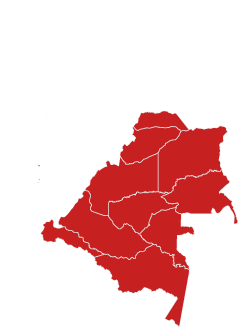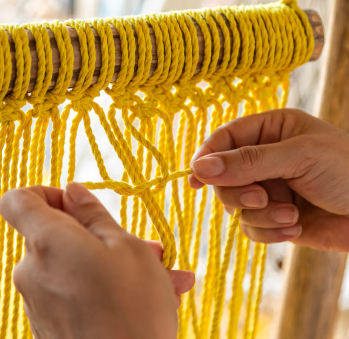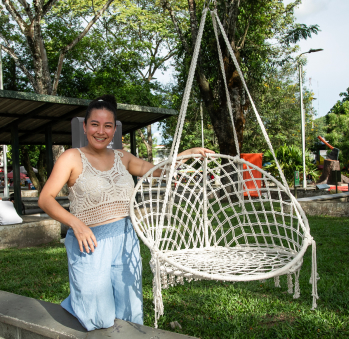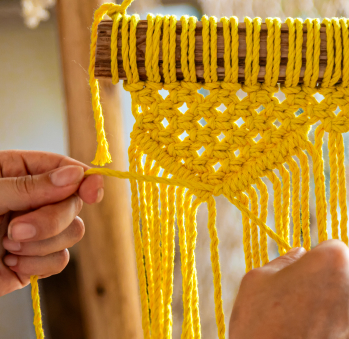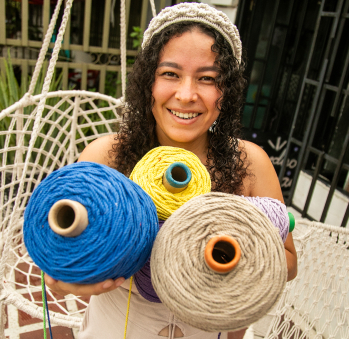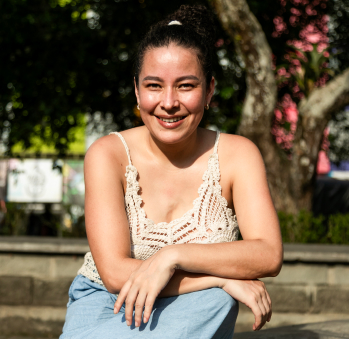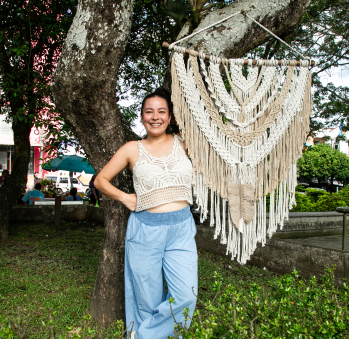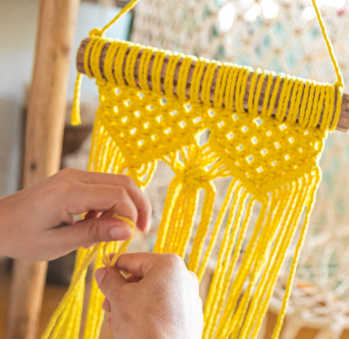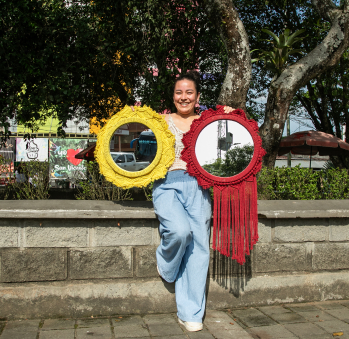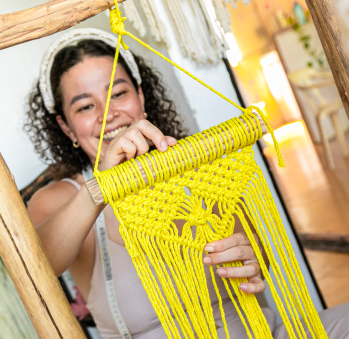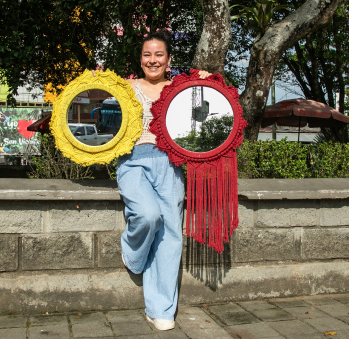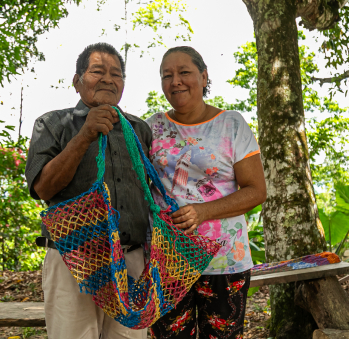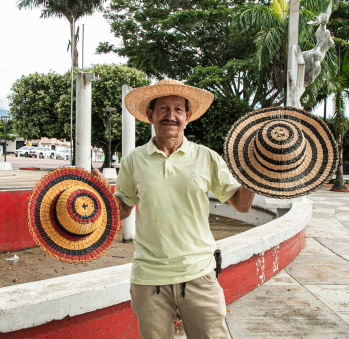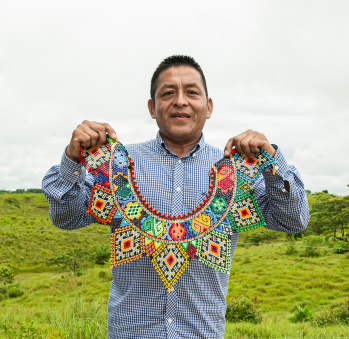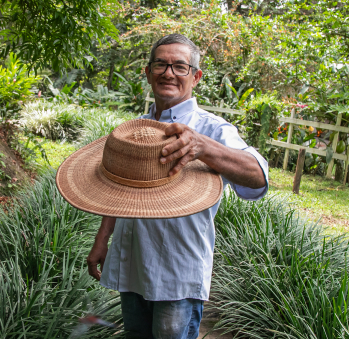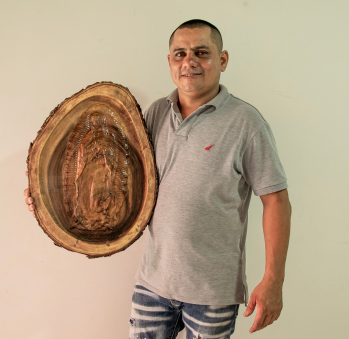Sulay Alejandra Alzate
Workshop: Nudo Raíz
Craft: Tejeduría
Trail: Caquetá Route
Location: San Vicente del Caguán, Caquetá
When Sulay Alejandra learned embroidery in school in Cartago, Valle, as part of her art subject’s requirements, she never envisioned those stitches would later be her lifeline as an adult. At 25, she found herself in San Vicente del Caguán, displaced from Valle due to a tumultuous childhood marred by violence and devoid of familial support. Leaving her daughter behind, she navigated a lonely path, working grueling hours in a poorly compensated kitchen. One day, while walking down the street, two women noticed her embroidered blouse. Inquiring about the creator, Sulay proudly declared it as her own work. Lucena Rebolledo and María Eugenia Ossa, the women, extended an invitation to join their weaving group.
Sulay started visiting them on Sundays, her sole respite from work. Initially mired in sadness and despondency, an outcome of displacement, she slowly found solace through newfound friendships in the city and the act of weaving. Within the group, she encountered macramé, requesting to learn, and experienced a transformative moment. The knots of her past, once a nexus of hardships, gradually morphed into prospects. Macramé offered her the means to reshape these knots into something entirely different – an epiphany that didn’t require unraveling them, but rather organizing them to unleash their creative potential.
A day arrived when Lucena invited Sulay to exhibit her weavings at an upcoming fair. Sulay spent an entire night weaving fervently. Seeking permission from her kitchen boss to attend the fair, she was warned that absenteeism might cost her job. Nonetheless, Sulay took a leap of faith into the unknown. Today, she stands proud of that choice, dedicating herself to a craft that not only sustained her but also facilitated her healing. Amidst a supportive community of women, Sulay gradually opened up about her past. As she tied knots with threads, she simultaneously mended her own wounds. In her words, “”tying knots is therapeutic.”” Since then, she’s become an ardent weaver, methodically preparing, planning, and dedicating herself to intricate knotting. Failure on initial attempts doesn’t deter her; she perceives mistakes as stepping stones to improvement. Her passion drives her to work tirelessly, even late into the night, meticulously designing and calculating with paper and pencil. Her dedication spans a wide spectrum, from crafting hammocks, lamps, and hanging chairs to wall tapestries, cat beds, and cribs. Occasionally, she ventures to the Caguán River, gathering driftwood to fashion shelves, skillfully merging wood with macramé.
Despite her accent marking her as an outsider upon arrival, San Vicente del Caguán became Sulay’s sanctuary. Here, she forged her place and regained self-assurance, equating it to finding a home. It was where she reconstructed her life, hand in hand with love from Deivy Alejandro Rojas. Their shared history bound them, forming a family from tumultuous beginnings. Through mutual support, they stood together when Sulay staked everything on her craft during the pandemic. Taking a risk by obtaining a loan, promoting her work on social media, Sulay garnered nationwide recognition for her pieces, emblematic of the curative essence embedded within artisanal craftsmanship. Now comfortable discussing her past, Sulay perceives herself as a transformed individual—a phoenix emerging from adversity to embrace her present self.
Craft
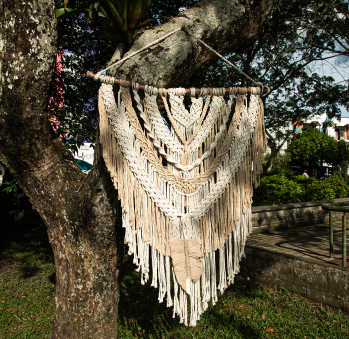
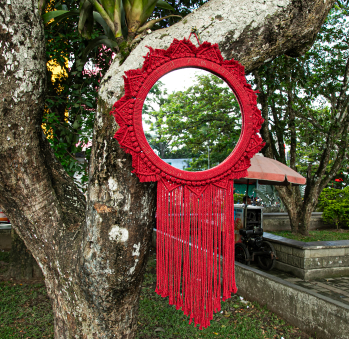
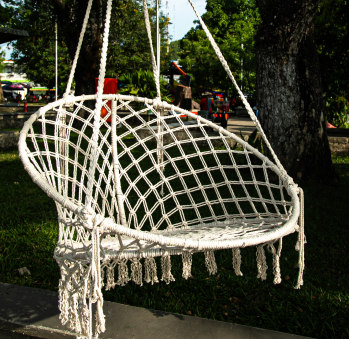
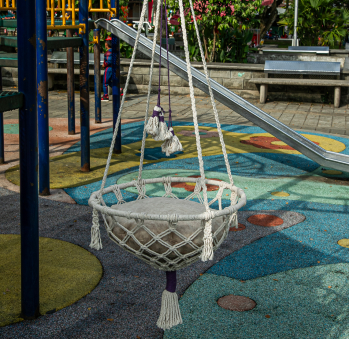
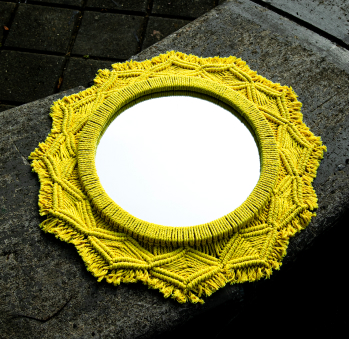
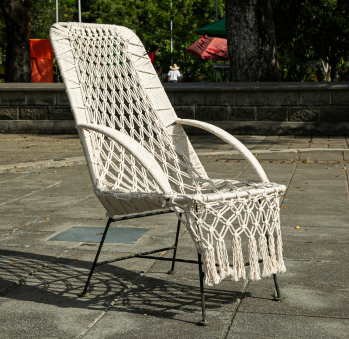
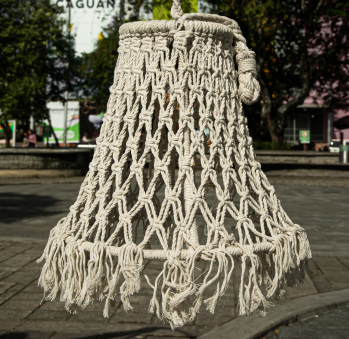
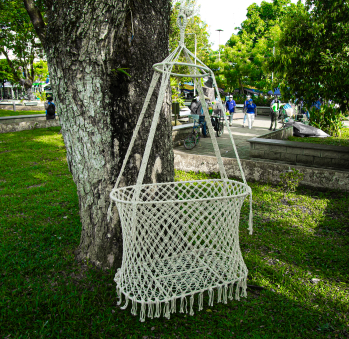
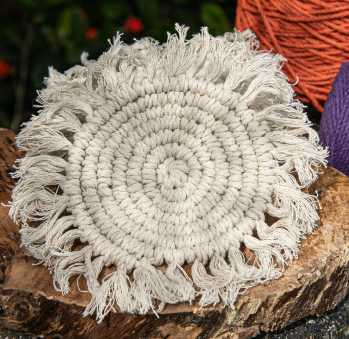









Artisans along the way
Artisans along the way
No puede copiar contenido de esta página

